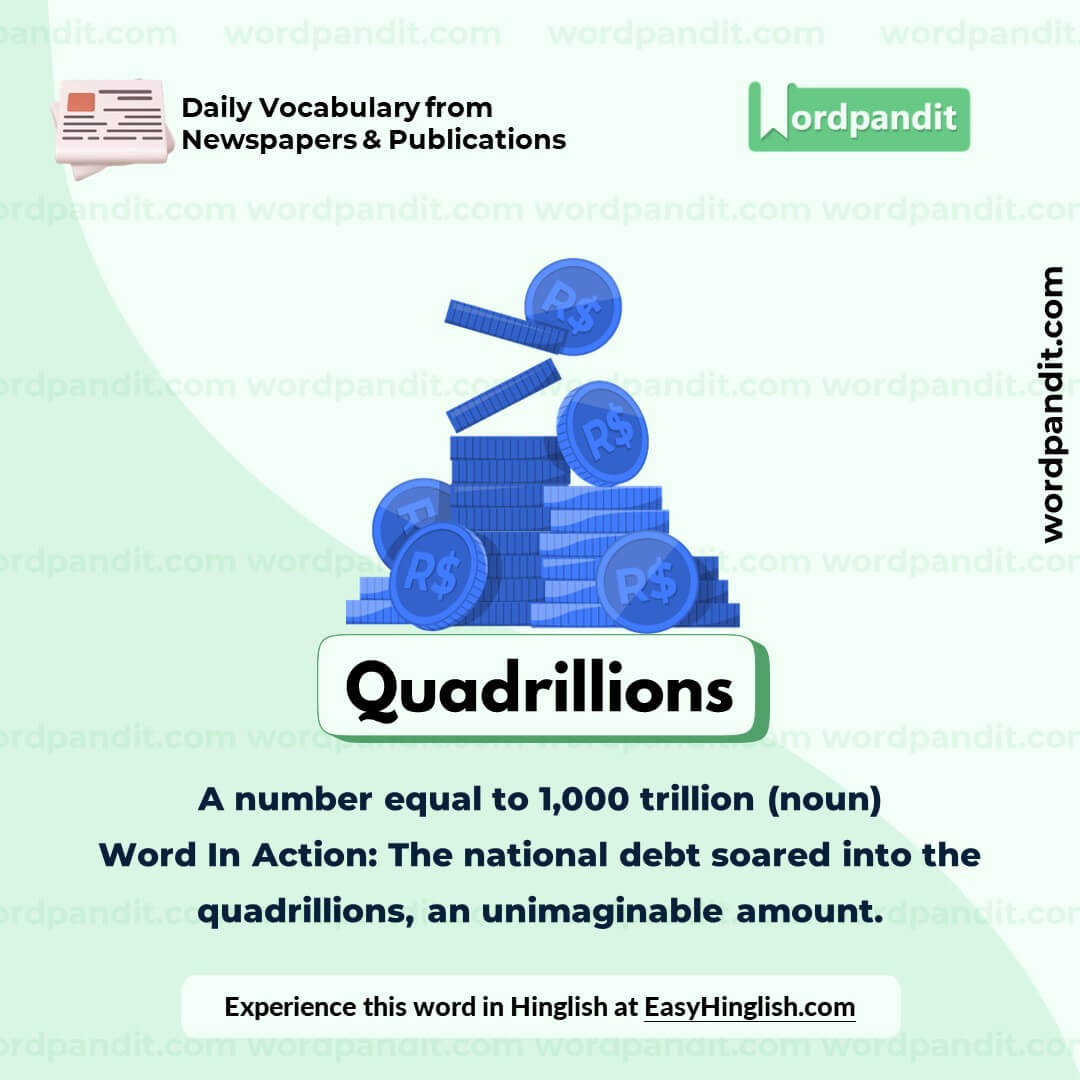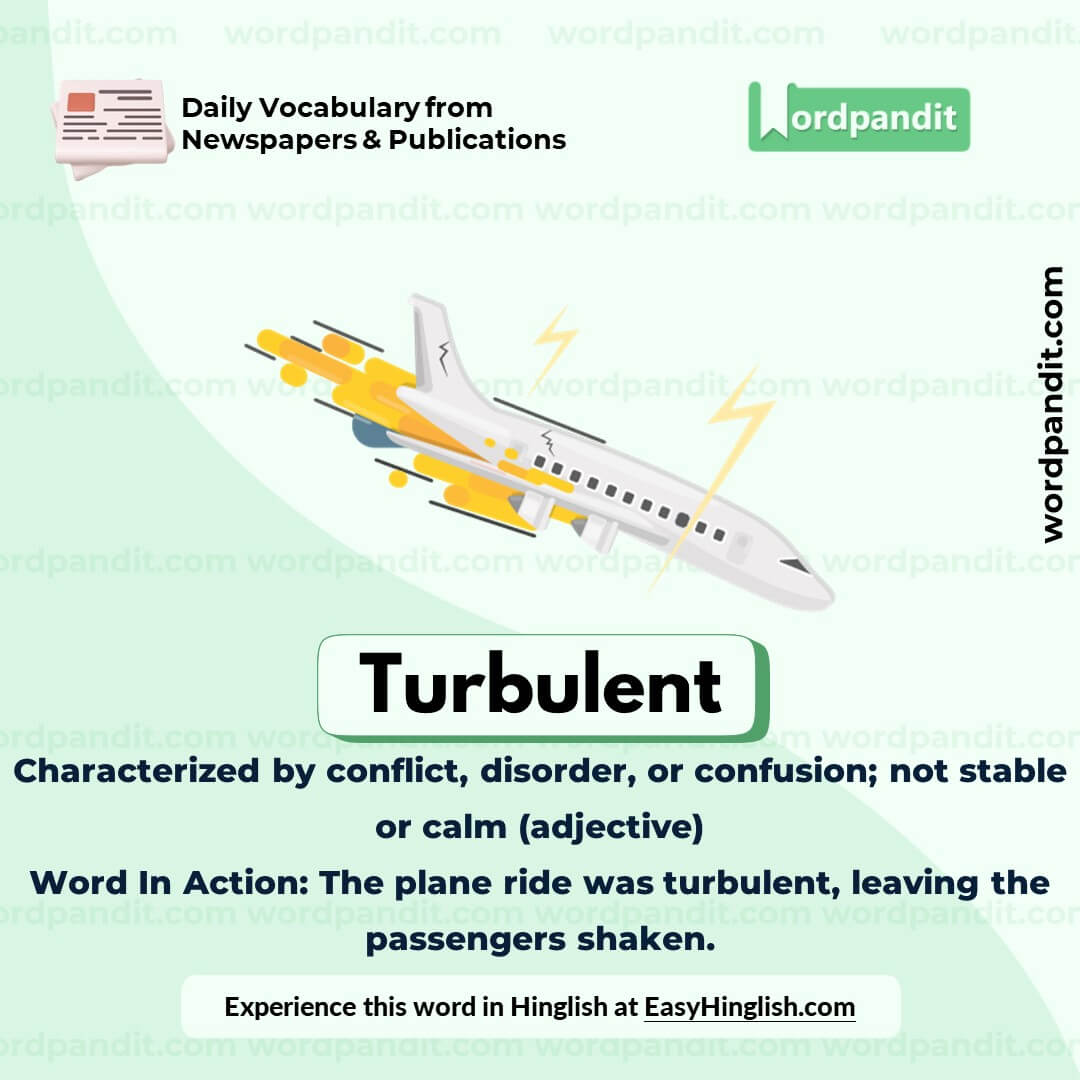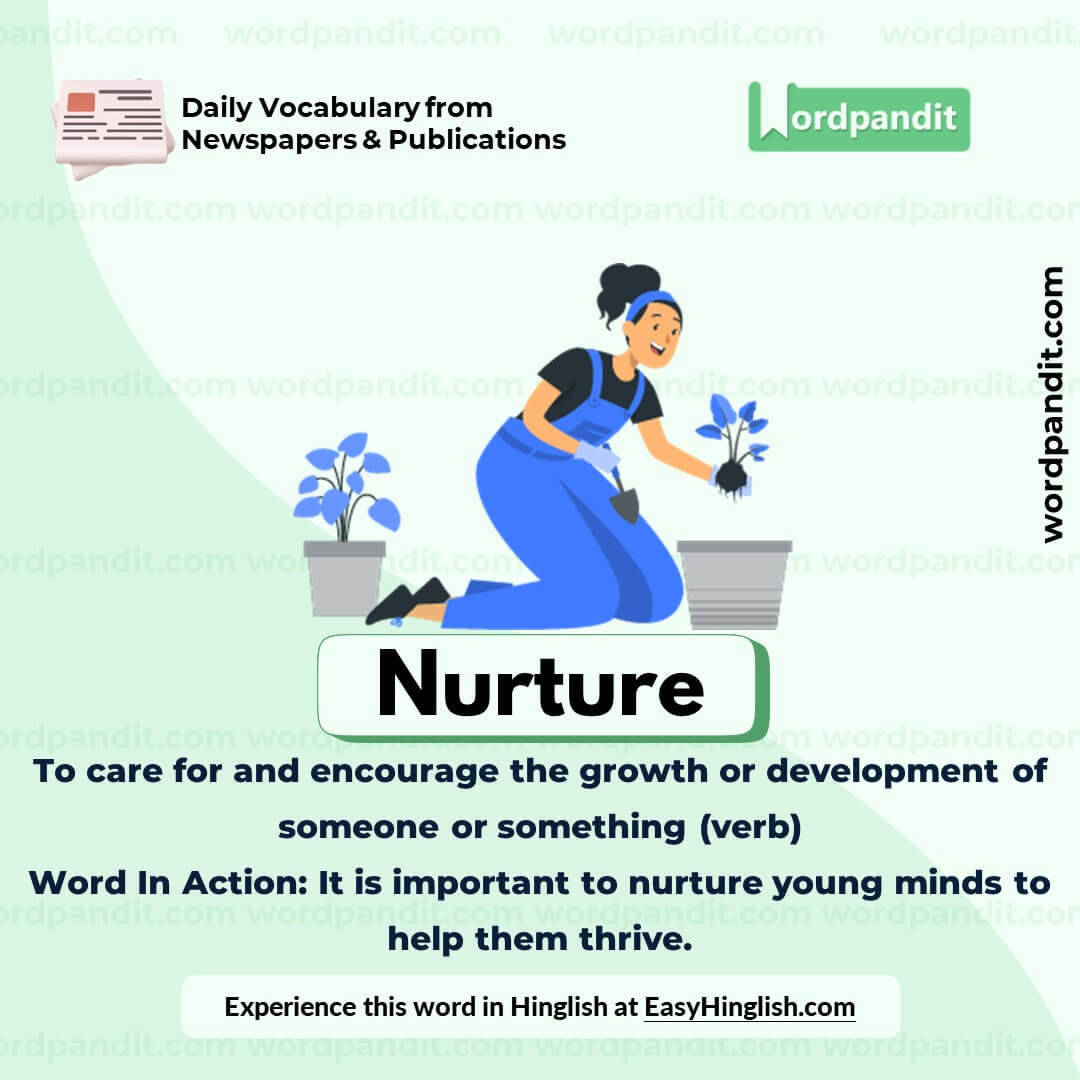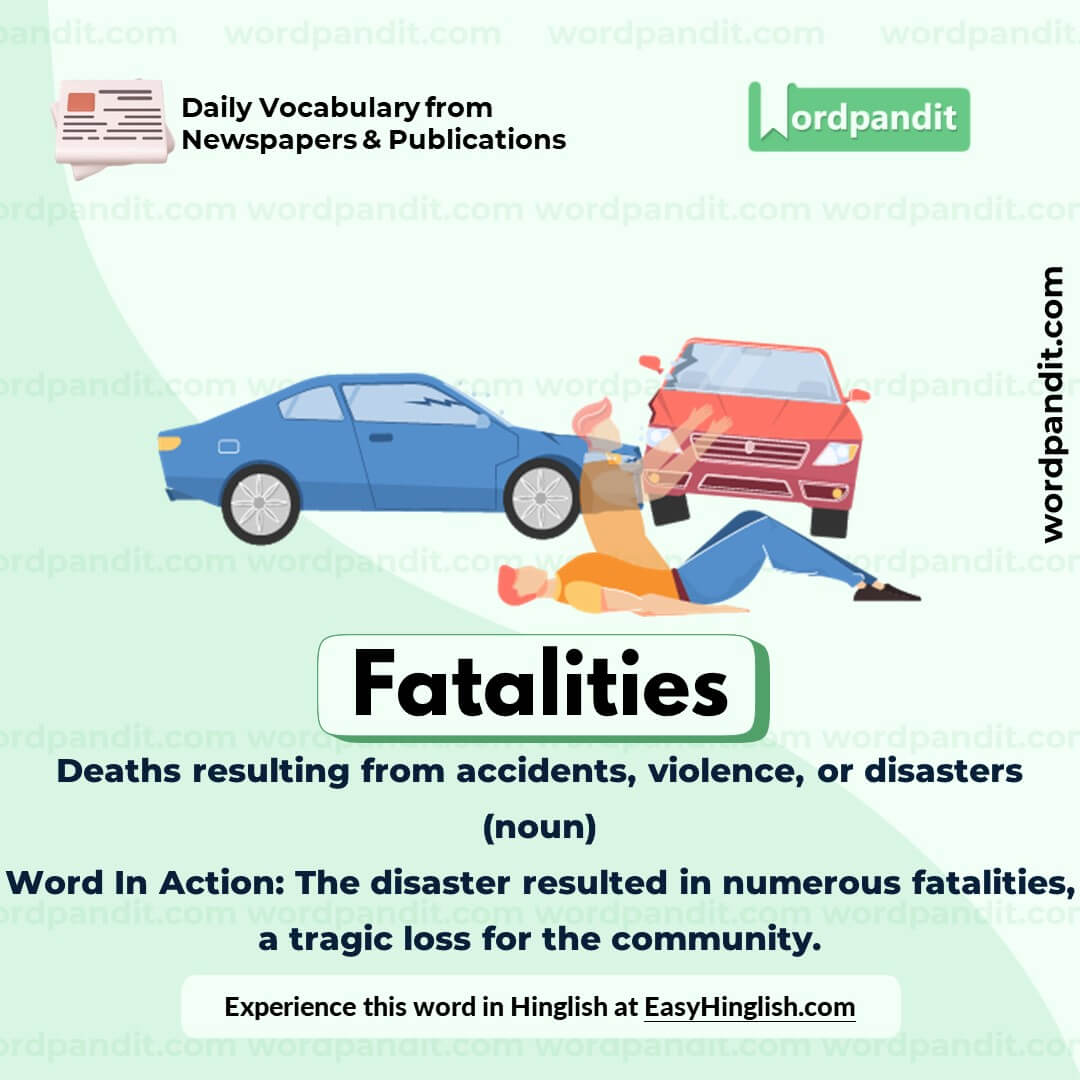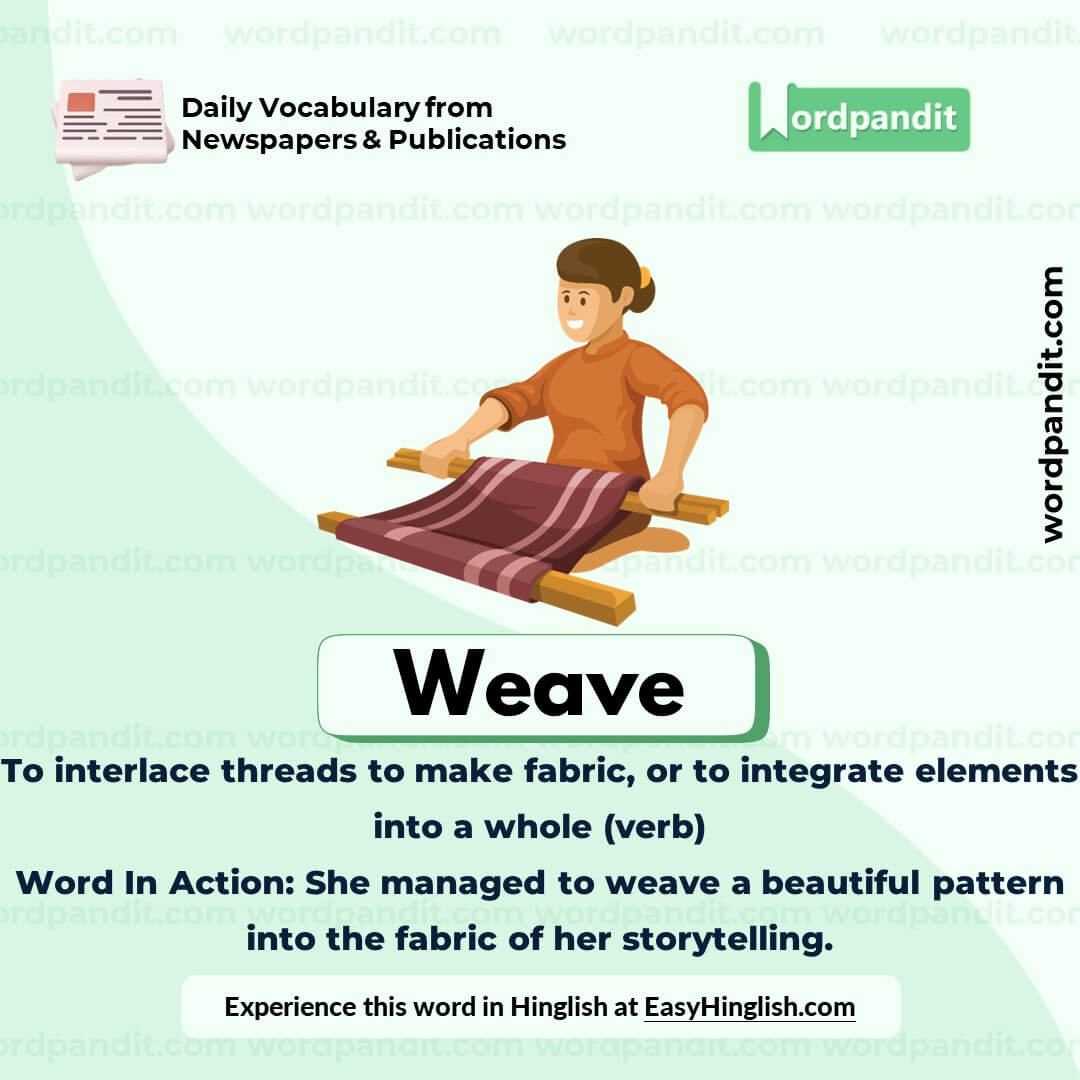Daily Vocabulary from International Newspapers and Publications
Expand Your Vocabulary with Wordpandit’s Global Vocabulary Hub
At Wordpandit, we are committed to helping you develop a truly global vocabulary by drawing from some of the most respected international publications. This section is designed to keep you ahead of the curve by introducing you to words that define global conversations and trends.
The Power of Global Sources
To help you think and communicate on a global scale, we curate vocabulary from renowned international sources, such as:
- The New York Times
- The Washington Post
- BBC
- The Guardian
- The Economist
- Scientific American
- Psychology Today
- And many more...
Stay Global, Stay Competitive
Our daily updates from international publications ensure you are consistently exposed to new words that reflect global news and developments, making sure your vocabulary is not only current but also globally relevant.
Enhance Your Global Perspective
Whether you’re preparing for international exams, aiming to excel in global business communication, or want to enhance your language skills for personal growth, Wordpandit offers the resources you need to thrive in a global context.
Effective Learning, Global Reach
Our learning methodology combines global examples, memory aids, and interactive activities, allowing you to internalize new words effectively and apply them in real-world scenarios.
Begin Your Global Vocabulary Journey Now!
Why Choose Wordpandit?
Practical Learning: Focus on words you'll actually encounter in real-world reading, enhancing your comprehension and communication skills.
Diverse Content: From current affairs to scientific breakthroughs, our varied sources expose you to vocabulary across multiple domains.
Effortless Integration: Make Wordpandit a part of your daily routine. Just a few minutes each day can significantly boost your lexicon over time.
Your Path to Vocabulary Mastery
- Visit our Daily Vocabulary section regularly
- Explore new words and their usage in context
- Practice incorporating these words into your own writing and speech
- Track your progress as your vocabulary expands
Start Your Journey Today
Embark on your vocabulary enhancement journey with Wordpandit. By consistently engaging with our daily posts, you'll build a robust vocabulary that serves you well in academic, professional, and personal contexts.
Remember, a word a day keeps linguistic limitations at bay. Make Wordpandit your daily companion in the quest for vocabulary excellence!
WORD-1: Quadrillions
Context:
"Over the past four centuries quadrillions of ants have created a strange and turbulent global society that shadows our own." - Aeon
Explanatory Paragraph:
The word "quadrillions" refers to an immensely large number, specifically 1 followed by 15 zeros (1,000,000,000,000,000). It is used to describe quantities that are incomprehensibly vast, often in scientific or mathematical contexts. In the sentence, it emphasizes the vast scale of ant populations and their collective societal behaviors.
Meaning: A number equal to 1,000 trillion or 1015 (noun).
Pronunciation: kwah-DRILL-yuhns
Difficulty Level: ⭐⭐⭐⭐ Advanced
Etymology: Derived from the French word "quadrillion," which in turn comes from the Latin root "quadri-" meaning "four" and the suffix "-illion" denoting large numbers.
Synonyms & Antonyms:
Synonyms: Innumerable, countless, incalculable
Antonyms: Minimal, negligible, few
Usage Examples:
- The Milky Way galaxy contains quadrillions of stars and planets.
- Over centuries, quadrillions of raindrops have carved the Grand Canyon.
- The scientist estimated that quadrillions of microscopic organisms thrive in the ocean.
- Data storage now reaches capacities in the quadrillions of bytes, measured in petabytes and exabytes.
Cultural Reference:
"In mathematics and science fiction, numbers like quadrillions are often used to describe vastness, from computing power to intergalactic distances." - Inspired by Carl Sagan
Think About It:
Why do humans struggle to visualize extremely large numbers like quadrillions, and how can we better grasp their magnitude?
Quick Activity:
Imagine and describe an example of something in the world that could be measured in quadrillions. Write two sentences explaining it.
Memory Tip:
Think of "quad" meaning "four," and then remember that "quadrillion" adds three zeros beyond a trillion (1012).
Real-World Application:
The term "quadrillions" is often used in astronomy, data science, and biology to convey numbers that surpass typical comprehension, such as the number of stars, data bytes, or living microorganisms on Earth.
WORD-2: Turbulent
Context:
"Over the past four centuries quadrillions of ants have created a strange and turbulent global society that shadows our own." - Aeon
Explanatory Paragraph:
The word "turbulent" describes a state of disorder, chaos, or instability. It can refer to physical motion, such as turbulent water or air, or metaphorical situations like turbulent times or relationships. In the context of the sentence, it highlights the erratic and complex dynamics within the global society of ants.
Meaning: Characterized by conflict, disorder, or confusion; not stable or calm (adjective).
Pronunciation: TUR-byuh-luhnt
Difficulty Level: ⭐⭐⭐ Intermediate
Etymology: From Latin "turbulentus," meaning "full of commotion or disorder," derived from "turba" (crowd, uproar).
Synonyms & Antonyms:
Synonyms: Chaotic, unstable, unruly, tempestuous
Antonyms: Calm, peaceful, serene, orderly
Usage Examples:
- The plane experienced turbulent air as it flew through the storm.
- Her childhood was turbulent, marked by frequent relocations and family conflicts.
- The stock market had a turbulent week with sharp rises and sudden falls.
- During the revolution, the country went through a turbulent period of uncertainty.
Cultural Reference:
"Turbulent times demand turbulent minds to navigate the chaos with creativity and resolve." - Inspired by historical reflections on revolutionary leaders.
Think About It:
Can turbulence in life, like in nature, ever be a positive force for change and growth? Why or why not?
Quick Activity:
Think of a historical or personal event that could be described as turbulent. Write a brief description of what made it chaotic or unstable.
Memory Tip:
Picture a "turbine" spinning wildly out of control, symbolizing chaos and instability, to remember the meaning of "turbulent."
Real-World Application:
"Turbulent" is frequently used in weather reports (e.g., "turbulent winds"), discussions about financial markets, or narratives describing emotionally charged periods or events.
WORD-3: Nurture
Context:
"Animals lay claim to more territories, reshaping the relationships in each new landscape by eliminating some species and nurturing others." - Aeon
Explanatory Paragraph:
The word "nurture" refers to the act of caring for and supporting the development of someone or something. It emphasizes providing attention, sustenance, or guidance to help grow and thrive. In the context of the sentence, it signifies how animals promote the growth and survival of certain species within their ecosystems.
Meaning: To care for and encourage the growth or development of someone or something (verb).
Pronunciation: NUR-cher
Difficulty Level: ⭐⭐⭐ Intermediate
Etymology: Derived from Old French "nourrir," meaning "to feed or nourish," which comes from Latin "nutrire," meaning "to suckle or nourish."
Synonyms & Antonyms:
Synonyms: Foster, cultivate, nourish, support
Antonyms: Neglect, hinder, suppress, ignore
Usage Examples:
- Good teachers nurture a love for learning in their students.
- The garden was nurtured with care, producing an abundance of fruits and flowers.
- She believes it is essential to nurture creativity in children from an early age.
- Conservationists nurture endangered species to ensure their survival.
Cultural Reference:
"The age-old debate of 'nature vs. nurture' examines whether genetic inheritance or environment plays a larger role in shaping individuals." - Psychology Studies
Think About It:
How does the concept of nurturing extend beyond individuals to communities, cultures, and ecosystems?
Quick Activity:
Write down three ways you can nurture a hobby or skill you want to improve. Share one with a friend or family member.
Memory Tip:
Think of "nurture" as related to "nutrition"—both involve providing sustenance to help something grow.
Real-World Application:
"Nurture" is often used in parenting, education, and environmental conservation to describe actions that promote development and well-being. It highlights the role of care and guidance in achieving growth.
WORD-4: Fatalities
Context:
"They fight the most destructive within-species conflicts, in terms of individual fatalities, that the planet has ever known." - Aeon
Explanatory Paragraph:
The word "fatalities" refers to deaths caused by accidents, violence, or disasters. It is commonly used in contexts where the number of deaths is being counted or highlighted, particularly in situations of tragedy or conflict. In the sentence, it underscores the severe consequences of within-species conflicts, emphasizing the significant loss of life involved.
Meaning: Deaths resulting from accidents, violence, or disasters (noun).
Pronunciation: fuh-TAL-uh-teez
Difficulty Level: ⭐⭐⭐ Intermediate
Etymology: From Late Latin "fatalitas," meaning "destiny or ordained death," derived from "fatalis" (fateful).
Synonyms & Antonyms:
Synonyms: Deaths, casualties, mortalities
Antonyms: Survivals, recoveries, rescues
Usage Examples:
- The storm caused numerous fatalities, leaving communities devastated.
- Authorities are working to reduce road fatalities through stricter traffic regulations.
- The report detailed the fatalities resulting from the recent armed conflict.
- Despite the intensity of the fire, there were no fatalities thanks to the swift evacuation.
Cultural Reference:
"The term 'fatalities' is often used in media headlines to report on the human cost of natural disasters, wars, and large-scale accidents." - Journalism Analysis
Think About It:
What measures can societies take to reduce fatalities during natural disasters and conflicts?
Quick Activity:
Think of a news story where the term "fatalities" was used. Write a sentence summarizing the event and how the fatalities could have been prevented.
Memory Tip:
Associate "fatalities" with "fatal," which means deadly, to remember its connection to loss of life.
Real-World Application:
"Fatalities" is commonly used in disaster management, healthcare, and news reporting to discuss the number of deaths caused by adverse events and to emphasize the need for preventive measures.
WORD-5: Weave
Context:
"South America a few hundred years ago, who spread across the planet by weaving themselves into European networks of exploration." - Aeon
Explanatory Paragraph:
The word "weave" refers to the act of interlacing threads or strands to form a fabric or pattern. Figuratively, it also describes integrating or combining different elements to create a cohesive whole. In the context of the sentence, it highlights how individuals or groups became part of larger networks by skillfully integrating themselves.
Meaning: To interlace threads to make fabric, or to integrate elements into a whole (verb).
Pronunciation: weev
Difficulty Level: ⭐⭐ Beginner
Etymology: From Old English "wefan," meaning "to weave or plait," derived from Proto-Germanic "weban" (to weave).
Synonyms & Antonyms:
Synonyms: Intertwine, interlace, braid, integrate
Antonyms: Separate, unravel, disconnect, disassemble
Usage Examples:
- She learned to weave baskets using traditional techniques.
- The author skillfully wove historical details into the novel's plot.
- Diplomats worked hard to weave alliances between the neighboring nations.
- The spider weaves its web with incredible precision and speed.
Cultural Reference:
"In Greek mythology, Arachne was a mortal who was transformed into a spider as punishment for her skill in weaving, symbolizing the craft’s timeless significance." - Mythological Stories
Think About It:
How do the threads of relationships, ideas, or cultures weave together to form a society?
Quick Activity:
Write a short paragraph describing how you would weave a personal hobby or interest into a professional career.
Memory Tip:
Picture a loom interlacing threads to form a pattern, just as "weave" means creating something by interconnecting elements.
Real-World Application:
"Weave" is commonly used in textiles, storytelling, and technology to describe the integration of components to create a unified result, such as woven fabrics, interconnected narratives, or digital networks.


